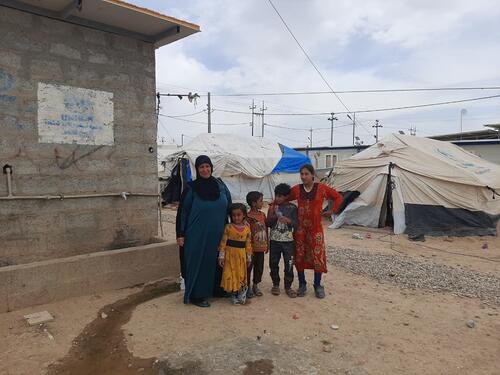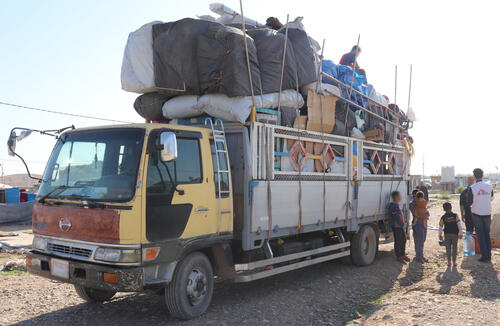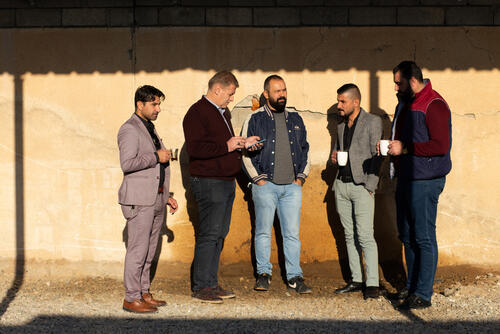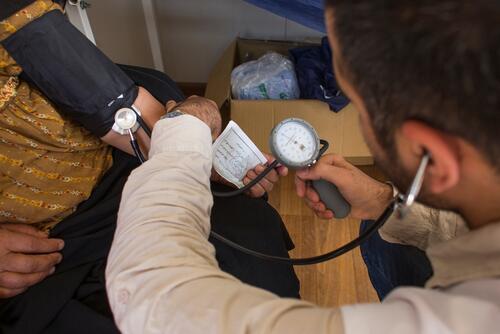In the midst of the COVID-19 pandemic, over 1.3 million people in Iraq are still displaced and living in overcrowded and precarious shelters with unhygienic conditions. Internally displaced people (IDPs) are amongst the most vulnerable facing the threat of COVID-19, says Médecins Sans Frontières (MSF).
“Internally displaced people in Iraq have been suffering for years, living in precarious and often cramped formal and informal camps settings,” said Gul Badshah, MSF Head of Mission in Iraq. “There have been the first confirmed COVID-19 cases in a few IDP camps in Iraq, including in Laylan camp where we work.”
“While there have been no other confirmed cases for now, we are still worried about the impact COVID-19 will have on the most vulnerable people inside the camps, especially given the difficulties for people to be able to apply self-protection measures,” Badshah said.
It’s critical that people in the camps have access to COVID-19 and regular non-COVID-related healthcare services.Gul Badshah, MSF Head of Mission in Iraq
To respond to the emergence of people with the new coronavirus in Laylan camp, in Kirkuk governorate in the country’s north, MSF is mobilising a 20-bed isolation and treatment facility. We are also continuing to implement triage measures for any suspected COVID-19 patients, as well as raising awareness about prevention measures.
However, due to the cramped and unhygienic conditions in the camps, it is almost impossible for people to implement personal protection measures like physical distancing or isolation of suspect cases.
“In the camps where MSF provides medical care, families are congested inside single tents and have scarce access to adequate hygiene facilities,” said Tetyana Pylypenko, MSF’s Medical Coordinator in Iraq. “Mixing with other camp residents is an unavoidable daily task, and with the insufficient amount of aid given, people have no choice but to go out and seek any work to support their families, despite knowing the increased risk of infection.”
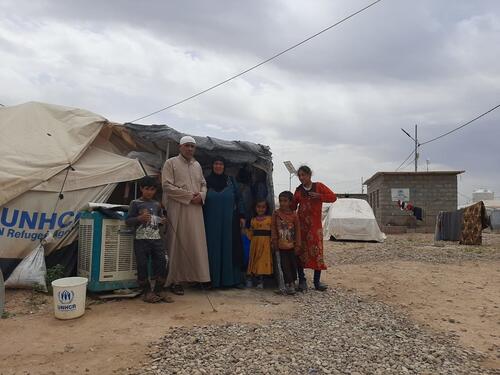
In Laylan camp in Kirkuk governorate, MSF provides care for non-communicable diseases, mental health consultations and sexual reproductive healthcare services. In addition to the unsanitary conditions in which many people face in camps, those with underlying health conditions such as diabetes, hypertension and heart and kidney diseases are particularly vulnerable to the virus, and need continuous care or risk life-threatening consequences.
“It’s critical that people in the camps have access to COVID-19 and regular non-COVID-related healthcare services,” said Badshah. “For MSF to continue to implement our programming across the country, and to adequately respond to all the health needs of people at this time, access and movement has to remain open.”
As Iraq witnesses increasing numbers of COVID-19 cases, in April MSF started to support Iraqi health authorities in tackling COVID-19, by shifting the activities in our centre for post-operative care in Mosul for isolation and treatment of COVID-19 cases, and supporting the main facility for referral of COVID-19 patients in the region.
In Baghdad, MSF has started supporting specialised care in the intensive care unit, as well as infection prevention and control inside one of the Ministry of Health COVID-19 treatment hospitals. We have also supported local health facilities in Erbil and in the capital, Baghdad, by providing technical support, logistic support and training for staff on infection prevention and control while still maintaining most of our regular medical projects open across the country.
Médecins Sans Frontières (MSF) has been working in Iraq since 1991. With more than 1,500 staff in its projects countrywide, MSF provides free, high quality healthcare for all people regardless of race, religion, gender or political affiliation.
MSF delivers primary and secondary healthcare, services for expectant and new mothers, treatment for chronic diseases, surgery and rehabilitation for war-wounded, mental health support and health education activities. We currently work in the governorates of Baghdad, Nineveh, Diyala and Kirkuk. We have also supported local health facilities in the southern provinces of Najaf and Dhi Qar in recent months with preparedness for mass casualty incidents. In 2019, MSF provided over 45,000 consultations for patients across Iraq for those suffering from chronic diseases, as well as over 34,000 consultations for maternity and reproductive health.



